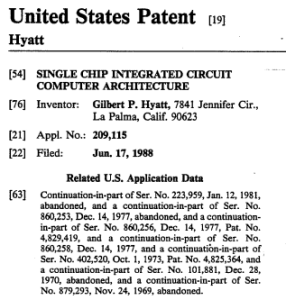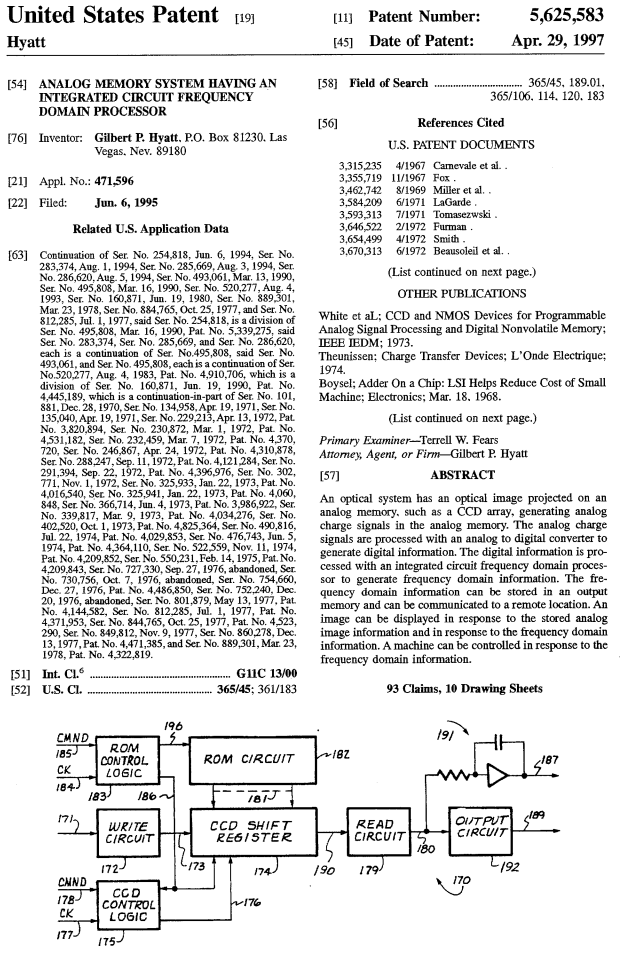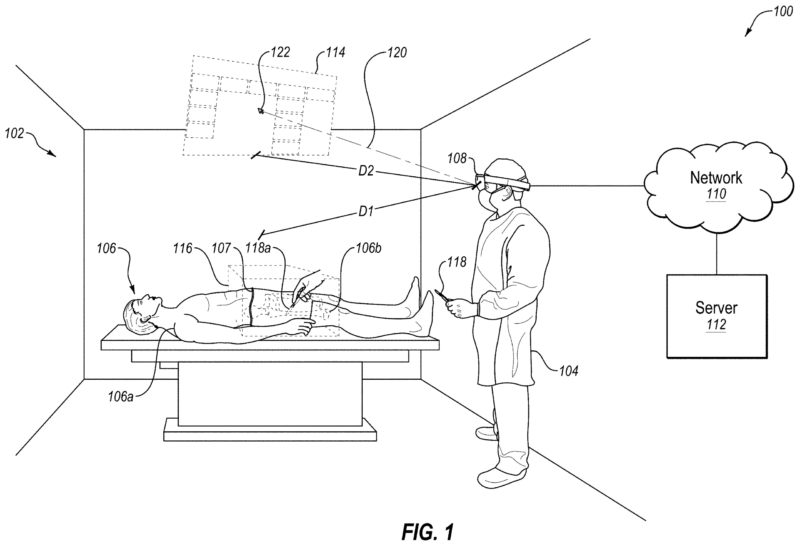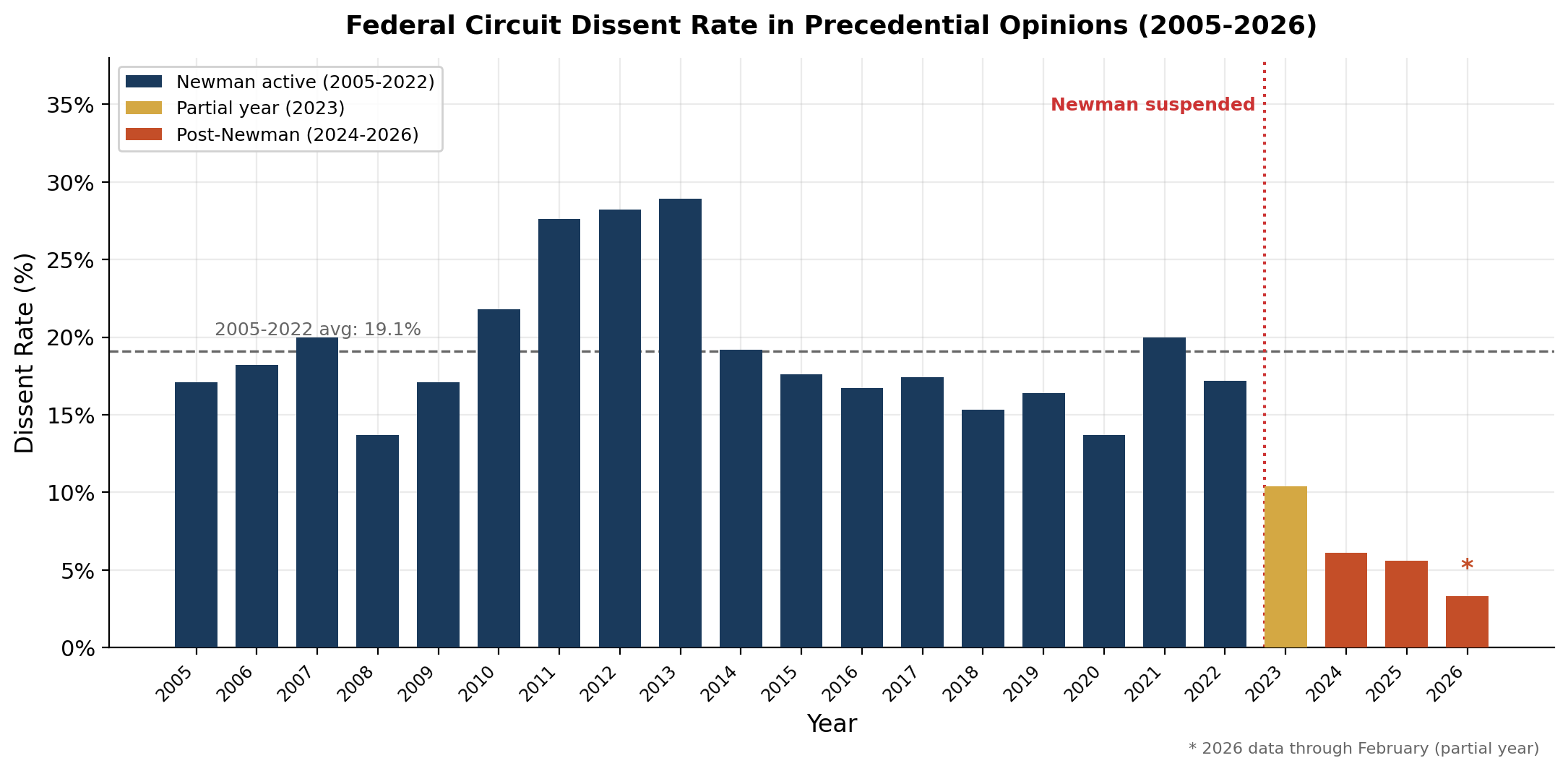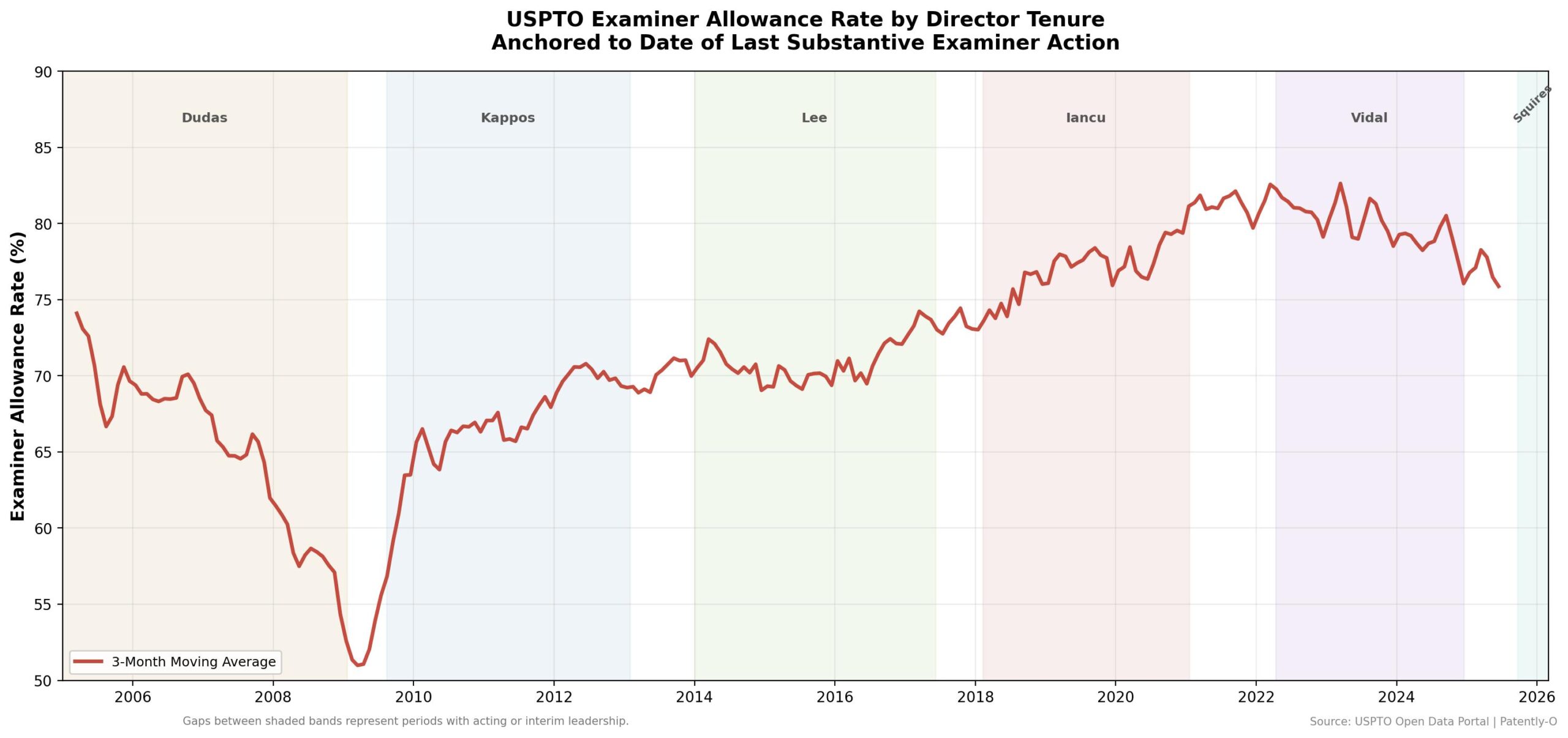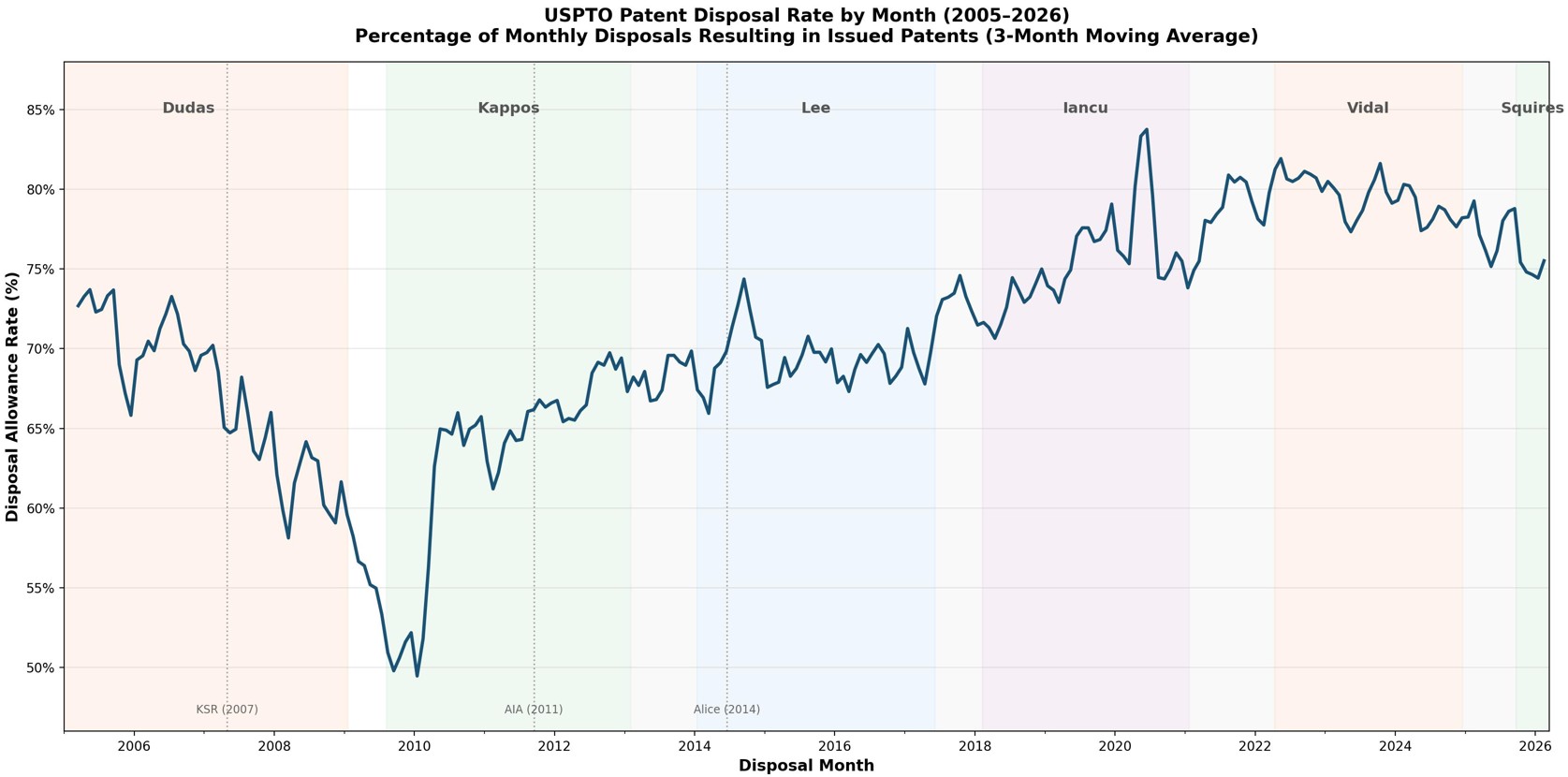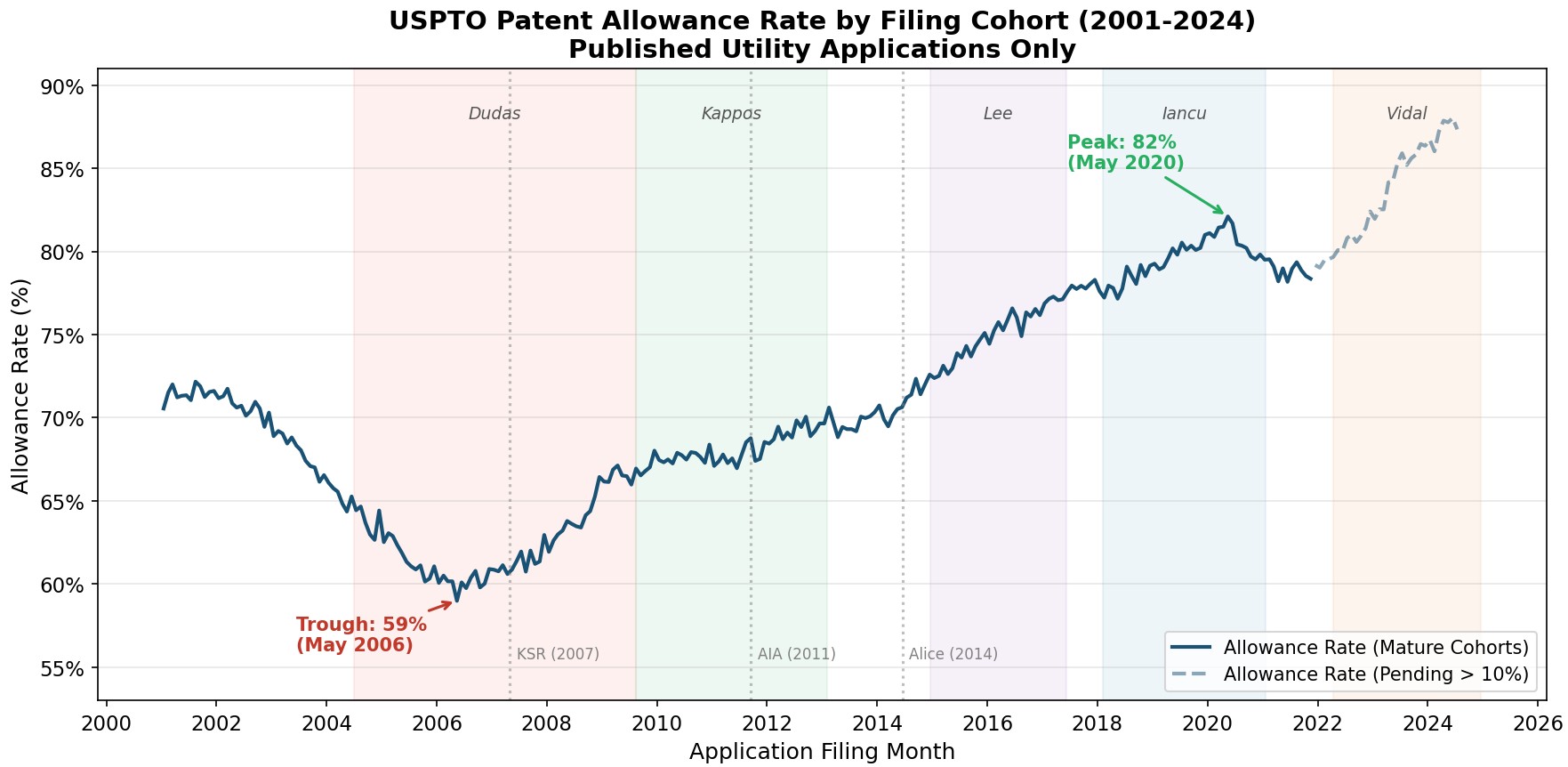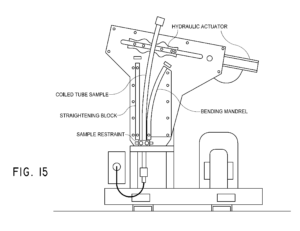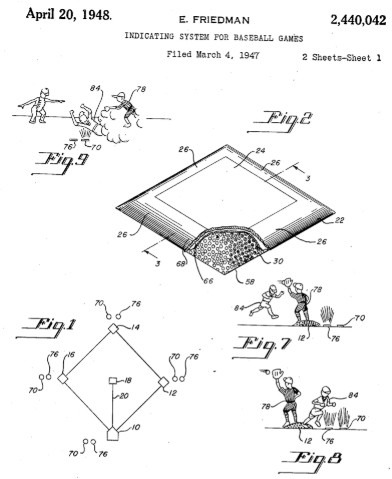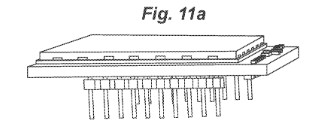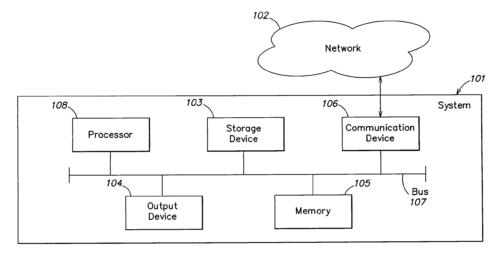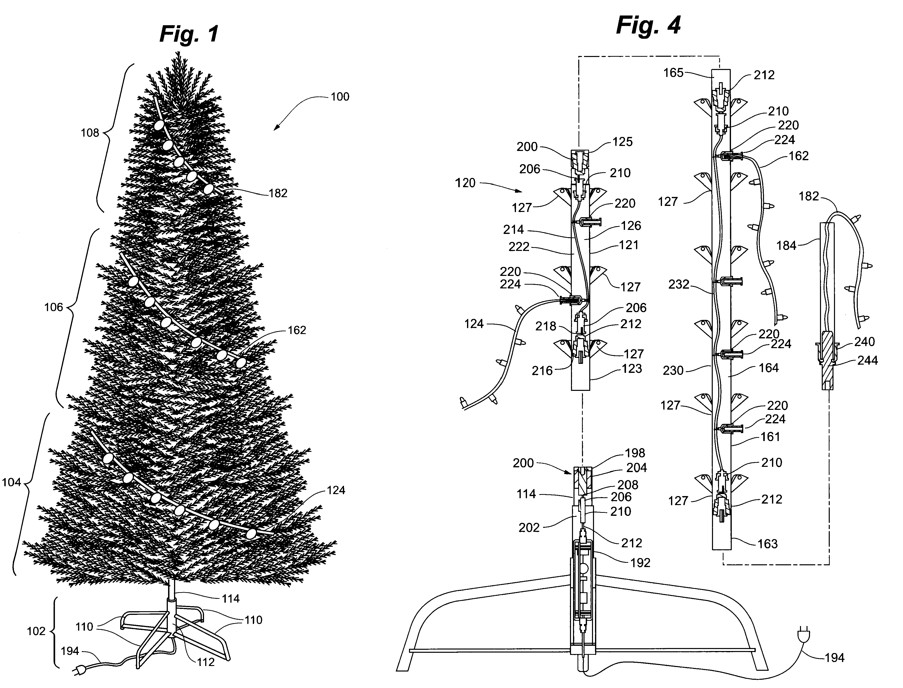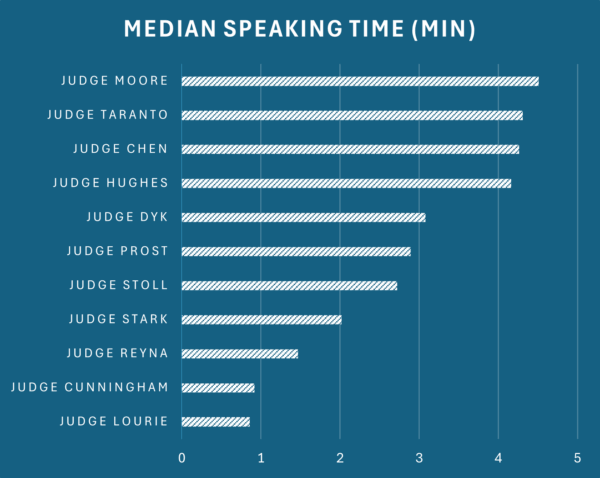by Dennis Crouch
Gilbert P. Hyatt has been litigating with the U.S. Patent and Trademark Office for longer than many patent attorneys have been alive. In 1968, Hyatt quit his engineering job at Teledyne and retreated to the family room of his Northridge, California home to design a computer that could fit on a single silicon chip. He filed his first patent application in December 1970, and the Patent Office eventually granted him US Patent No. 4,942,516 for "Single Chip Integrated Circuit Computer Architecture." That was in 1990, twenty years after filing. The patent was later partially invalidated in an interference with Texas Instruments, but Hyatt had already collected millions in licensing fees from Sony, Nikon, Sharp, Toshiba, Philips, and Panasonic.
Hyatt holds 75 issued patents. And, he is also no stranger to the Supreme Court. In Kappos v. Hyatt, 566 U.S. 431 (2012), a unanimous Court sided with him on the scope of de novo review in § 145 civil actions against the PTO. And the Justices heard Franchise Tax Board of California v. Hyatt three separate times, in 2003, 2016, and 2019, in a sprawling tax dispute that ultimately led the Court to overrule Nevada v. Hall and hold that states have sovereign immunity from private suits in sister-state courts. 587 U.S. 230 (2019). Now, at 87, Hyatt is petitioning the Supreme Court once again, this time asking the Justices to take up a question that has been brewing for more than two decades: whether the judicially created doctrine of "prosecution laches" can override the Patent Act's statutory timing provisions to deny a patent to an applicant who met every deadline Congress set. Hyatt v. Squires, No. 25-1049 (cert. petition filed Mar. 2, 2026).
The petition presents a clean and focused question of law with potentially major consequences. Hyatt argues that the Federal Circuit's prosecution laches doctrine directly conflicts with the Supreme Court's holdings in SCA Hygiene Products Aktiebolag v. First Quality Baby Products, LLC, 580 U.S. 328 (2017), and Petrella v. Metro-Goldwyn-Mayer, Inc., 572 U.S. 663 (2014), both of which held that laches is a "gap-filling doctrine" that cannot apply when Congress has enacted statutory timing rules. The Patent Act, Hyatt argues, contains comprehensive timing provisions governing every step of prosecution, from initial filing through continuation practice, office action responses, PTAB appeals, and judicial review. With no gap to fill, there is no room for the courts or the PTO to invent their own timeliness rules.
Although Hyatt's case involve extreme timelines, there are many who would like to expand the laches doctrine to encompass a much wider swath of cases. According to PTO data cited in the petition, nearly 20% of all continuation patent applications are filed more than six years after earliest US filing date, and over a third of the patents protecting the most successful pharmaceutical products exceed that threshold. Under the Federal Circuit's six-year delay presumption used in other contexts, all of these patents are potentially vulnerable.
To continue reading, become a Patently-O member. Already a member? Simply log in to access the full post.
